Showing 11-20 of 25 results

Cover Crops for Soil Health Workshop
All session recordings and slide presentations from this three-day professional development workshop are available online. Hosted by Northeast SARE and Delaware State University in March 2016, this event addressed the latest research on the benefits and successful management of cover crops in grain, vegetable and animal production systems.
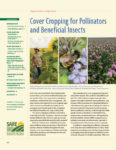
Cover Cropping for Pollinators and Beneficial Insects
This 16-page bulletin will help you use cover crops to encourage populations of pollinators and beneficial insects on your farm while you address your other resource concerns.
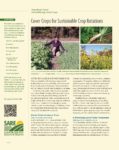
Cover Crops for Sustainable Crop Rotations
Cover crops are one of the best ways to improve soil health, reduce off-farm inputs and protect natural resources. Find a wealth of educational materials developed out of decades of SARE-funded cover crop research.

2014 National Conference on Cover Crops and Soil Health
All session recordings and slide presentations from the National Conference on Cover Crops and Soil Health are available online. Held in 2014 in Omaha, Neb., the event brought together 300 agricultural leaders and innovators to explore how we can make American agriculture more sustainable through improved soil health. Attendees represented agricultural industry, the farm community, academia, government, commodity and conservation organizations.

Edible Avalon Curriculum
This summer program curriculum teaches youth about local food systems and sustainable agriculture.
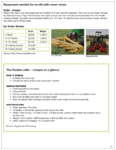
Cover Crops and No-Till Management for Organic Systems
This Rodale Institute fact sheet reviews the use of cover crops and no-till in organic systems, including selection, establishment and mechanical termination of cover crops; crop rotations; and energy and production budgets.
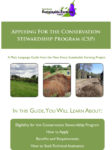
Applying for the Conservation Stewardship Program (CSP)
This plain language guide discusses eligibility and the application process for the USDA-NRCS Conservation Stewardship Program (CSP).

Earthen Path Organic Farm
Steven Schwen’s farming roots were established during the ‘back to the land’ movement in the 1970s. Earthen Path Organic Farm grew out of his vision of a sustainable world based on local economies.
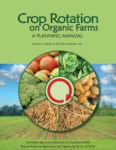
Crop Rotation on Organic Farms
Crop rotation strategies that can be applied under various field conditions for conventional or organic crops to improve soil quality and health, and manage pests, diseases, and weeds
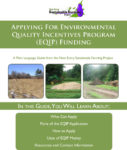
Applying for Environmental Quality Incentives Program (EQIP)
This plain language guide introduces readers to the USDA-NRCS Environmental Quality Incentives Program (EQIP), and explains eligibility for EQIP, how to apply and how the money can be used.